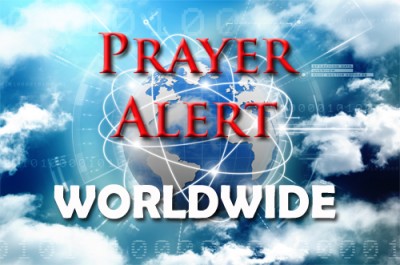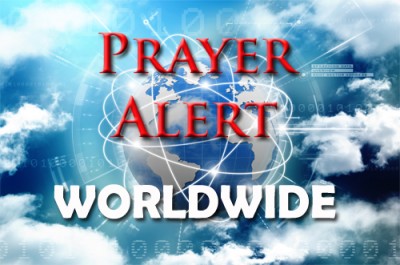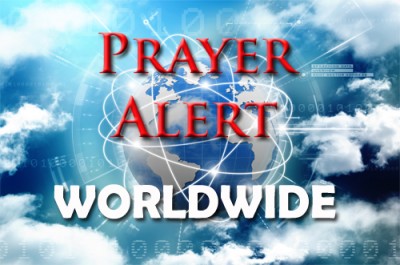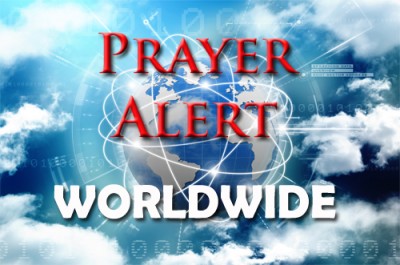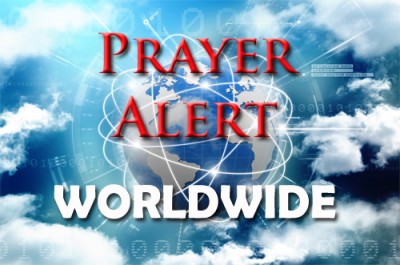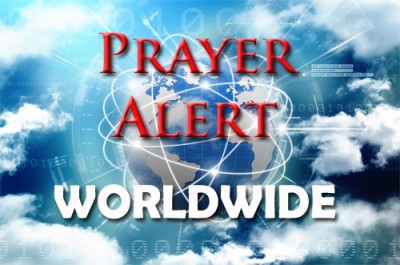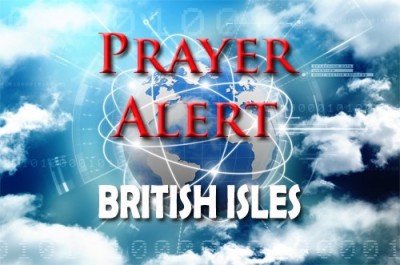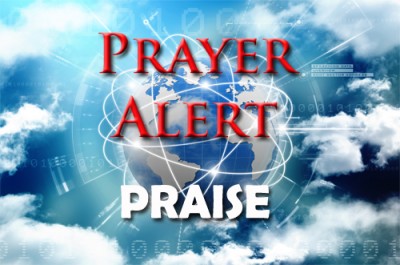Survivors of a massacre at a school in the western Oromia region of Ethiopia reported that 54 ethnic Amhara were massacred, probably more. The Amhara are mostly Christians. About 60 armed terrorists, identifying themselves as the Oromo Liberation Army (OLA), swept into Gawa Quanqa village, Guliso District at around 5 pm on 1 November. Some survivors were able to flee to a nearby forest while the assailants rounded up women, children and elderly who were unable to run away. Then they shot the defenceless group and burnt 120 houses. ‘This senseless attack is the latest in a series of killings in the country in which members of ethnic minorities have been deliberately targeted’, said Amnesty International.
Global: engaging with the Bible
12 Nov 2020For hundreds of years, the Church has worked hard at translating, publishing and distributing the Bible. Only around 250 million people are still waiting for Bible translation to begin in the language they know best. But all this is just groundwork for the main task of seeing the nations become disciples of Christ through engaging with the Bible. Technology provides audio Bibles, Bible study apps, and videos dramatising Biblical content; these are a great blessing, especially where Bibles are hard to acquire, where literacy is low, or where it is a security risk to have a hard copy. Bible engagement is a challenge to every church across the nations. Pray for God to increase the number of all those who work in the gap between the Bible and the world: Bible teachers for children and adults; those who present Bible truth through music, art, dance, drama, fiction and other forms of storytelling and learning; and scholars and commentators.
Father José Arieira de Carvalho, a Portuguese priest who has lived in the DRC for over a decade, reported a critical situation in the north-eastern part of the country ‘where rebel groups roam across the region, looting and murdering. Recently the Lisasa village suffered a violent attack by rebel troops, claiming at least 21 lives, including that of catechist Richard Kisusi. There are reports that a Catholic church was defiled, several houses were burned down, and a medical post was looted. Bishop Sikuli Paluku Butembo-Beni called upon UN forces stationed in the region to protect the civilian population from attacks. In view of the escalating violence, the need for protection is becoming ever more pressing. The wealth of minerals has transformed certain regions of the country into a battleground for violent factions, bringing hardship and suffering to the people. It is believed there is a conspiracy between internal and external players to obscure ruthless exploitation of natural resources (mining, oil, woodland, and land).
China: Hong Kong opposition condemned
12 Nov 2020Beijing’s new laws will disqualify state elected legislators if they support Hong Kong's independence, refuse to acknowledge China's sovereignty, ask foreign forces to interfere in the city's affairs, or in other ways threaten national security. Four legally-elected legislators have been ejected, causing a mass resignation of most of Hong Kong's pro-democracy lawmakers from parliament. This is an ‘open challenge’ to China’s authority. Many now see Hong Kong's limited democracy as in its death throes. The UK government accused China of breaching its commitments to protect Hong Kong's autonomy. They were promised they could keep some unique freedoms for fifty years. Dominic Raab said, ‘Beijing's imposition of new rules to disqualify elected legislators in Hong Kong constitutes a clear breach of the legally binding Sino-British Joint Declaration, breaking its promises again and has undermined Hong Kong's special degree of autonomy.’ The USA called it a move towards one-party dictatorship.
Suspected IS-aligned militants herded dozens of fleeing victims to soccer fields to execute them and abducted others, in weekend raids in Mozambique. The commander of the police force said extremists carried out attacks on several villages in the Cabo Delgado province. They beheaded over fifty people, abducted women and children and burnt down homes. Then they went after those who had fled to the woods and continued their macabre actions. The BBC, and privately-owned Pinnacle News, reported that villagers in Mautide who tried to run were taken to the field and chopped to pieces. Police learned of the massacre committed by the insurgents through reports of people who found corpses in the woods The oil-rich Cabo Delgado province has seen a rise of terror attacks since 2017 by ASWJ militants who have officially pledged allegiance to IS Central Africa Province.
Israel: third lockdown during Hanukkah?
12 Nov 2020Israel’s government is considering halting the gradual lifting of coronavirus restrictions, with some senior officials now weighing new prohibitions. A new report cited health ministry officials who warned that a third nationwide lockdown might be imposed during the upcoming Hanukkah festival, which begins in December. ‘The idea that we may need to impose a third lockdown during Hanukkah is not unfounded,’ the sources were quoted as saying. Prime minister Binyamin Netanyahu has asked experts to draw up plans for new restrictions, including nightly curfews which could be imposed across Israel. Under the current exit strategy, Israel was to have entered the third stage of the gradual reduction of lockdown restrictions next week, with shopping malls and markets reopening, along with studies resuming for students in grades 11 and 12.
We would like to invite our readers to unite in a UK Day of Prayer for our communities and for significant breakthrough this Friday.
The Evangelical Alliance (EA) has called a UK Day of Prayer for Friday 13th November. They are working with networks, denominations and churches to bring people together to pray.
As communities across the UK face a second wave of the Covid-19 virus, further restrictions and lockdowns; as many churches are forced to stop their in-person gatherings; and suffering and loss affect so many families, we hear the call again to unite and seek God together in this time of trouble.
Regardless of lockdowns, we have the great privilege and freedom to be able to call upon the Lord, wherever we are.
Churches and Christians across the UK are being encouraged to come together, in one Spirit, to call on the One who saves – to bring light in dark places, to be the hope to the nations, to bring healing to our lands.
Please join us as we pray for all in leadership at this time, making decisions about the containment of the virus, for those working in health and social care, those working on a vaccine, those most at risk, and those suffering hardship and distress.
Let’s also be thankful for the vaccine breakthrough that has just been announced and for the many positive stories of communities reaching out to assist their neighbours in need.
Resources: The Evangelical Alliance has provided suggestions to help us cry to the Lord in one voice, ‘Hear our prayer and heal our Land’.
Christian girl rescued from forced marriage
06 Nov 2020On 2 November Karachi police recovered a 13-year-old Christian girl and arrested the Muslim accused of abducting and forcibly marrying and converting her. The action came after a rising tide of protests over the previous validation of the marriage. The girl, Arzoo Raja, was due to appear on 5 November at a court hearing which will hear evidence about Arzoo’s age (her parents have provided proof that she was born in 2007) and decide whether she was forcibly converted and if her marriage is legal.
